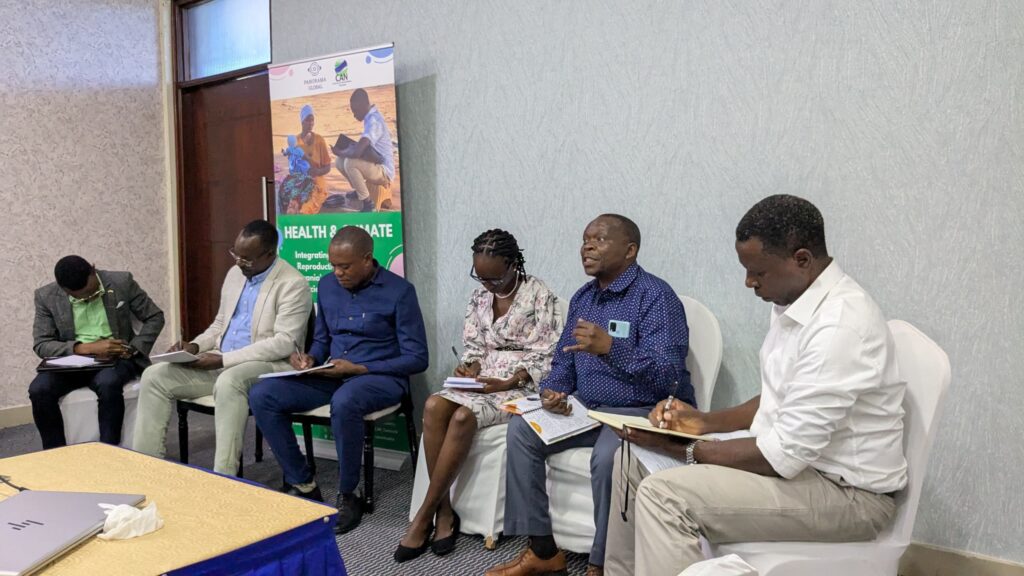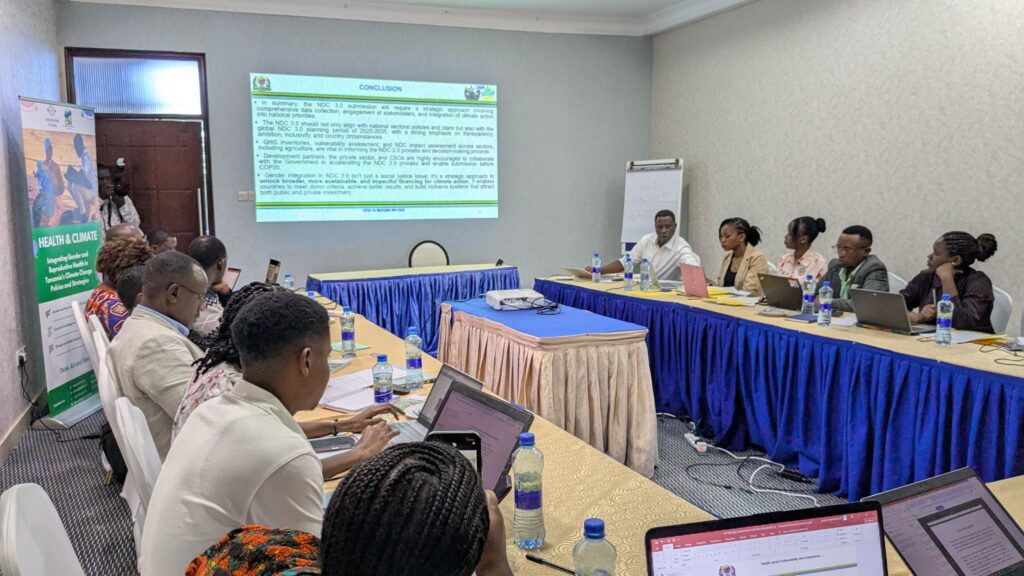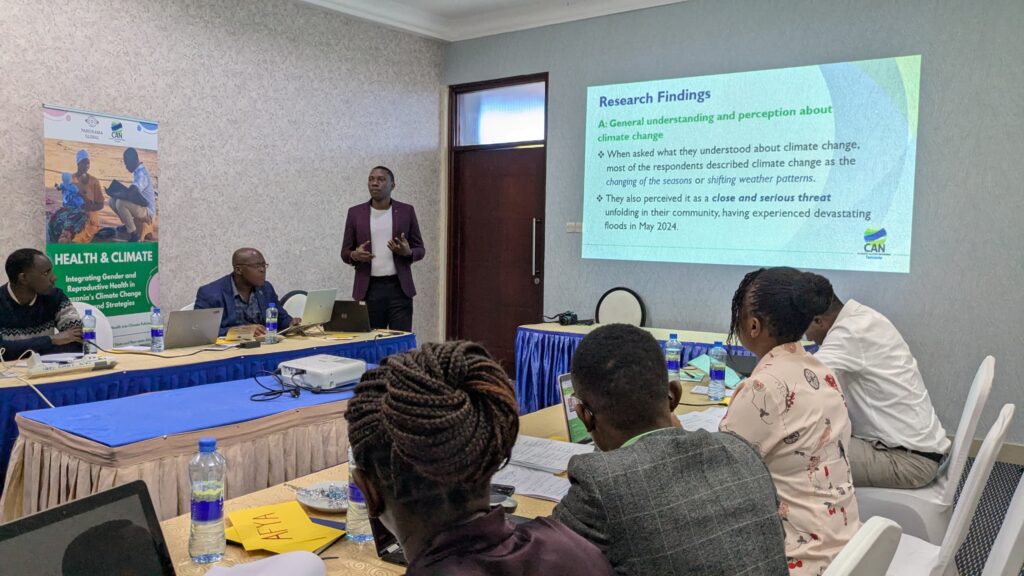Dar es Salaam. As Tanzania prepares its third Nationally Determined Contribution (NDC 3.0) to address climate change, stakeholders are calling for the integration of gender and reproductive health issues into the national strategy.
The appeal comes amid growing concern over how climate change is disrupting the health sector contributing to the spread of diseases such as malaria, diarrhea, and malnutrition, while also damaging health infrastructure during climate-induced disasters like floods and droughts.
These concerns were raised during a two-day workshop that began on June 11, 2025, in Dar es Salaam. Organized by Climate Action Network (CAN) Tanzania, the event brought together government officials, health experts, and civil society organizations to discuss the intersection of climate change and public health, with a particular focus on women and girls.
Dr Mkama Manyama, Projects Manager at CAN Tanzania, emphasized the need to systematically document the health effects of climate change to inform more effective interventions.
“We are facing new health challenges linked to climate change, and unless we address them in a structured way, we risk worsening public health outcomes,” said Dr Manyama.

“The recommendations we are submitting to the government are aimed at building a sustainable future for both current and future generations.”
One of the key presentations at the workshop was delivered by Reebok Mnyigumba, Climate Change and Health Project Coordinator at CAN Tanzania. His analysis highlighted how rising temperatures, frequent floods, prolonged droughts, and cyclones are undermining access to essential healthcare services—particularly in vulnerable districts.
“Our research shows a clear increase in climate-sensitive diseases like diarrhea, malaria, dengue fever, and malnutrition, especially where agricultural productivity and food systems are disrupted,” Mnyigumba explained. “We’ve seen firsthand how floods in districts like Kilwa have destroyed health centers and roads, leaving women and children without access to maternal and child health services.”
Representing the Ministry of Health, Budodi Walwa acknowledged the sector’s vulnerability and outlined plans to enhance climate resilience. According to Walwa, a 2024 government assessment revealed that the health sector remains highly exposed to extreme weather events and emerging diseases.
“We are in the final stages of updating our health sector climate adaptation plan,” Walwa said.
“This strategy will be integrated with other national plans to ensure a unified response. It includes measures to strengthen physical infrastructure—such as buildings, energy, and water systems—so they can withstand climate shocks.”
He also noted the importance of leveraging technology and innovation to ensure continuity of services during disasters.
“We are looking into solutions like telemedicine and mobile health platforms to maintain access to care when physical access is cut off,” he added. “Importantly, issues affecting women, children, and reproductive health are often overlooked, and we are working to ensure they are fully included in our climate response.”

Ramadhan Hangwa, a representative from the United Nations Population Fund (UNFPA), expressed optimism that the stakeholders’ recommendations would be taken seriously by policymakers.
“I am confident that the voices raised here—particularly around gender and reproductive health—will shape the next phase of Tanzania’s climate and health planning,” Hangwa said.
CAN Tanzania has been a key player in advancing the climate-health agenda and is working closely with the Ministry of Health and other partners to ensure that the upcoming National Strategic Plan on Climate and Health is inclusive and science-driven.
The organization is also mobilizing resources to support climate resilience efforts and promote locally conducted research.
As the climate crisis deepens, stakeholders agree that Tanzania’s national climate strategies must move beyond infrastructure and emissions, and more fully embrace the social and health dimensions—especially those affecting women and vulnerable groups.



Some truly interesting info , well written and broadly user friendly.